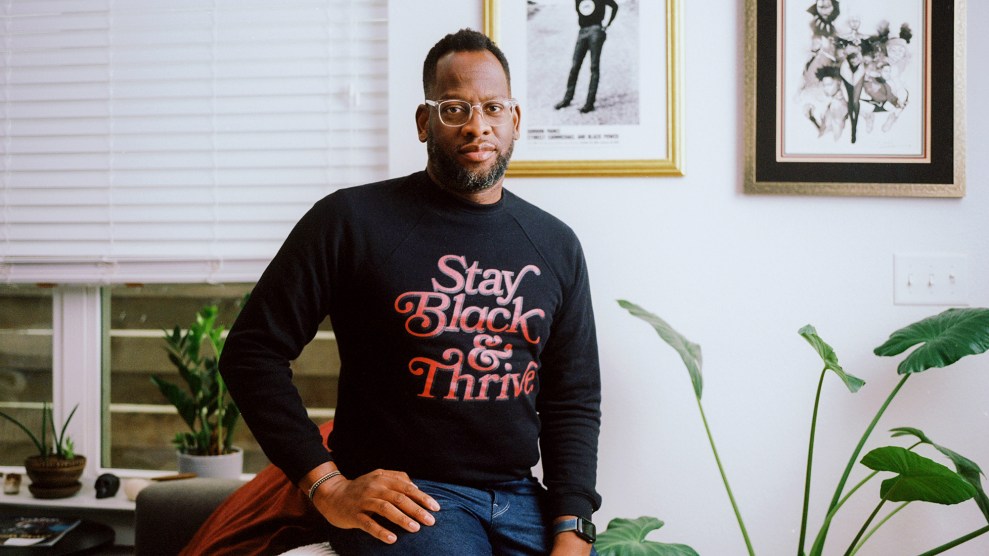I could do a list titled “The Empire Strikes Back” of pictures from Rambo to Adventures in Babysitting that have, whatever their entertainment quality, served only to maintain the status quo, strengthen stereotyping, and push people apart. They get enough airtime. These aren’t even necessarily movies I like a lot, but all had political importance. Listed chronologically:
All the President’s Men (1976, Alan J. Pakula) Excellent Hollywood ensemble casting and William Goldman script. At the time it felt like the end of the nightmare…. Little did we know.
Man of Marble (1977, Andrzej Wajda) This film and Wajda’s sequel, Man of Iron, not only documented the Solidarity movement, they became part of it.
Blue Collar (1978, Paul Schrader) The ending is purposely didactic, but the trip there delves into racial and union politics at a depth seldom matched before or since.
Melvin and Howard (1980, Jonathan Demme) The Odyssey of the American working stiff. Media-driven dreams, divorce, restlessness, serial employment–like a wake-up call for the ’80s.
Reds (1981, Warren Beatty) Bohemian romance meets the Russian Revolution, or why Americans make lousy communists.
The Ballad of Gregorio Cortez (1982, Robert M. Young) A late skirmish in the so-called Mexican War. The oppressor’s need to demonize the oppressed has seldom been better realized.
Missing (1982, Constantin Costa-Gavras) Like Reds, it reinforces the idea that if an American wasn’t present it didn’t really happen, but explores sharp implications about U.S. imperialism. Jack Lemmon and Sissy Spacek get to the point.
Brazil (1985, Terry Gilliam) In a dystopian vision, Gilliam takes what Kafka started to operatic heights in a film that is fantastic but not, finally, unrealistic.
The Official Story (1985, Luis Puenzo) The emotional fallout of Argentina’s “dirty war,” starring a terrific Norma Aleandro. Posits that political awareness is a responsibility, not an option.
Parting Glances (1986, Bill Sherwood) One of the earliest films about gay men to acknowledge AIDS, it never loses its sense of fun and solidarity.
Platoon (1986, Oliver Stone), Do the Right Thing (1989, Spike Lee), Boyz N the Hood (1991, John Singleton) I put these together because of the need they filled. Platoon helped vets feel acknowledged, which The Deer Hunter, Apocalypse Now, or The Green Berets never did. Do the Right Thing focused a national disease onto a single block, and Boyz N the Hood let people into a world they didn’t want to know existed. Aesthetic quibbles miss the point–the films threw a hard light on some nasty shit.
A Taxing Woman (1987, Juzo Itami) The individual’s relationship to the group and to the state in modern Japan, played out in a duel between a love-hotel franchiser and a tax investigator. How many movies make you want to hang with an IRS agent?
The Accused (1988, Jonathan Kaplan) Hollywood comes to grips with rape as a pervasive attitude rather than an isolated incident. Anchored by Jodie Foster’s she’s-no-angel protagonist, it launched a whole genre of made-for-TV movies, an indication that a film has hit a cultural nerve.
JFK (1991, Oliver Stone) Take it apart incident by incident, but the fact remains: We all think the government is lying. With Kevin Costner as Jim Garrison to sugarcoat the bitter pill, Stone’s JFK is a larger version of Joe Pesci’s memorable paranoid speed-rap. It is to conspiracy theorists what Clueless is to valley girls–a point of reference in a treacherous world.
Riff Raff (1991, Ken Loach) The legacy of Thatcherism and the inept Labour Party seen through the eyes of the multi- ethnic crew at a construction site.
Malcolm X (1992, Spike Lee) Lee maintains what Alex Haley’s Autobiography of Malcolm X captured: the incredible evolution of Malcolm X’s thought.
In the Name of the Father (1993, Jim Sheridan) A “paddy thief” is swept into the black hole of the Irish-British conflict. Sheridan presents his main characters as unwilling pawns, then uses them to flush out the bigger players.
Burnt by the Sun (1994, Nikita Mikhalkov) A lament for the loss of idealism. A populist Red general and eccentrics holed up in an artists’ retreat are the last to get the news of Stalin’s purges. The director and his own daughter play the leads.















